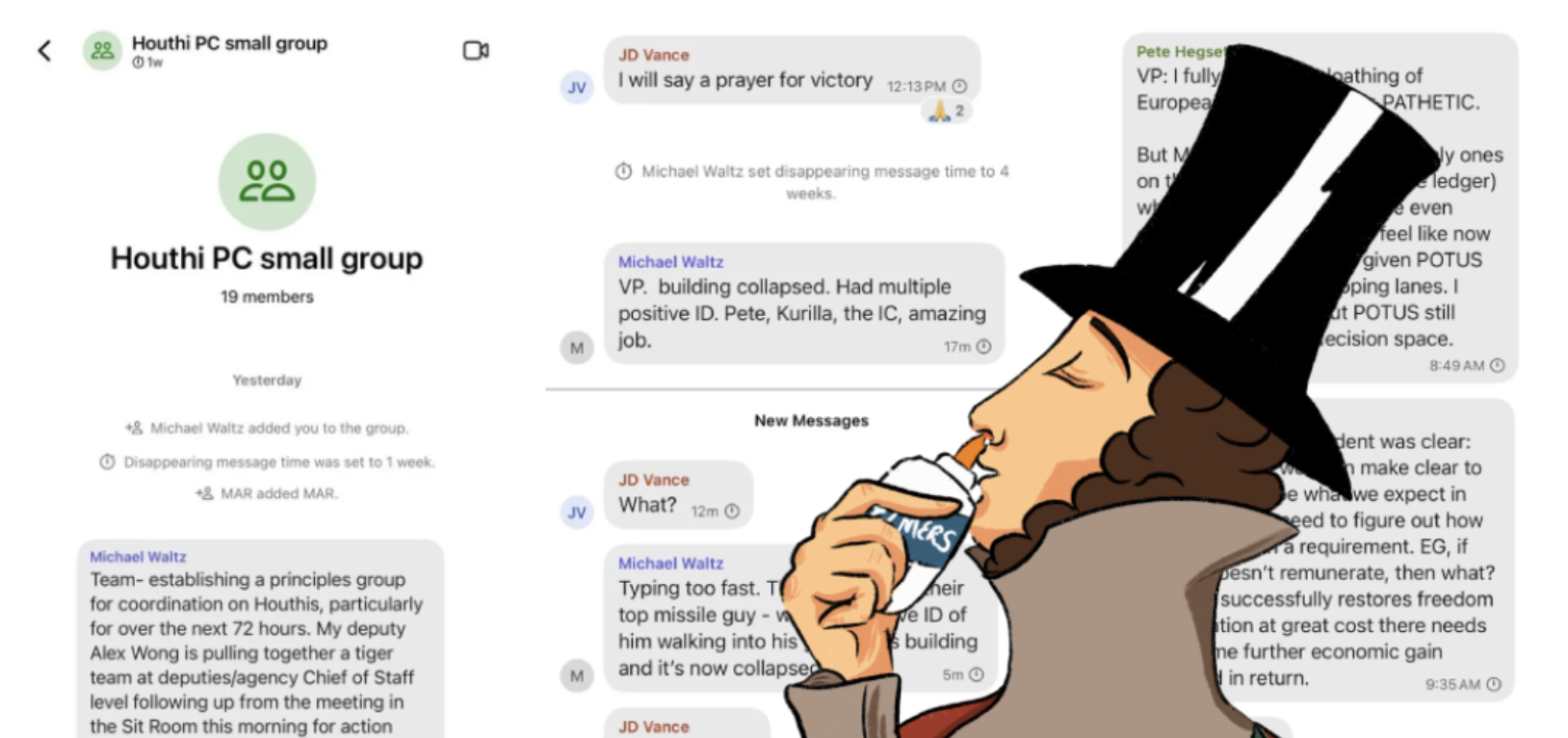It’s no secret that national security advisor Mike Waltz is in trouble for adding Atlantic editor-in-chief Jeffrey Goldberg to a private signal group discussing classified military information, including bombing plans in Yemen. This group, which included Secretary of Defense Pete Hegseth, Secretary of State Marco Rubio, Director of National Intelligence Tulsi Gabbard, and Vice President JD Vance, in addition to fourteen other high ranking members of government, was a clear violation of protocol and unnecessarily exposed the United States to hostile foreign actors. Goldberg’s exposure of this dramatic lapse in national security represents the high standard of journalism that we hold ourselves to. But Goldberg’s eagerness to voluntarily leave the group chat has forced us to ask the question, when should we leave the group chat?
That’s right, one of The Fed’s editors-in-chief was also erroneously added to the “Houthi PC small group.” We were surprised at first, since our previous high-ranking sources in government have mostly been positioned within the judicial branch (not naming names, but it rhymes with Real Horsuch). Of course, we thought that we were added due to our top-notch commitment to truth, justice, and the American way, as demonstrated by our previous feats of quality journalism. However, as the conversation turned from fistbumps and fire emojis to detailed plans about bombing locations, we began to suspect that someone had made a mistake. After calling up Goldberg, we confirmed that he too had been added erroneously, and decided to wait and see what happens.
Goldberg’s article came as a shock to the Trump Administration, to the American people, and—most importantly—to us! We really thought we were in this together, Jeff! With Goldberg’s proclamation that it would be unethical and dangerous to remain in the group, this has forced us to consider whether our commitment to freedom of the press has once again taken us too far. After Goldberg left, the group chat quickly turned from Yemen to a discussion about who had just left the chat. The Fed obviously stayed silent during this discussion, hoping not to be noticed. After changing our account name to MAR, which was the username of Marco Rubio’s account, we convinced members of the group chat to kick the real Marco Rubio out, a modern Among Us game with top advisors on national security that we effortlessly won.
Within the 48 hours since news of this chat came to light, we can confirm that the group chat has mostly consisted of usual boomer reactions to incorrectly sending a text and then realizing that their digital footprint is, in fact, visible. While we were despondent when Linda McMahon was added and the conversation turned to Columbia, we can now additionally confirm that the Trump administration plans to cut funding from every Columbia department which does not contain the word American in its title. While this does feel like an important discovery, we worry that remaining in this group chat opens our paper up to legal liability.
Please comment if you have any advice. If you would like to donate funds to The Columbia Federalist we will also consider adding you to the group chat, serious inquiries only.


